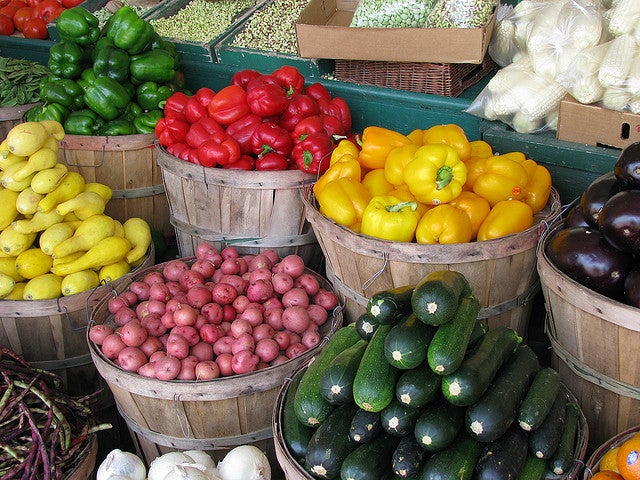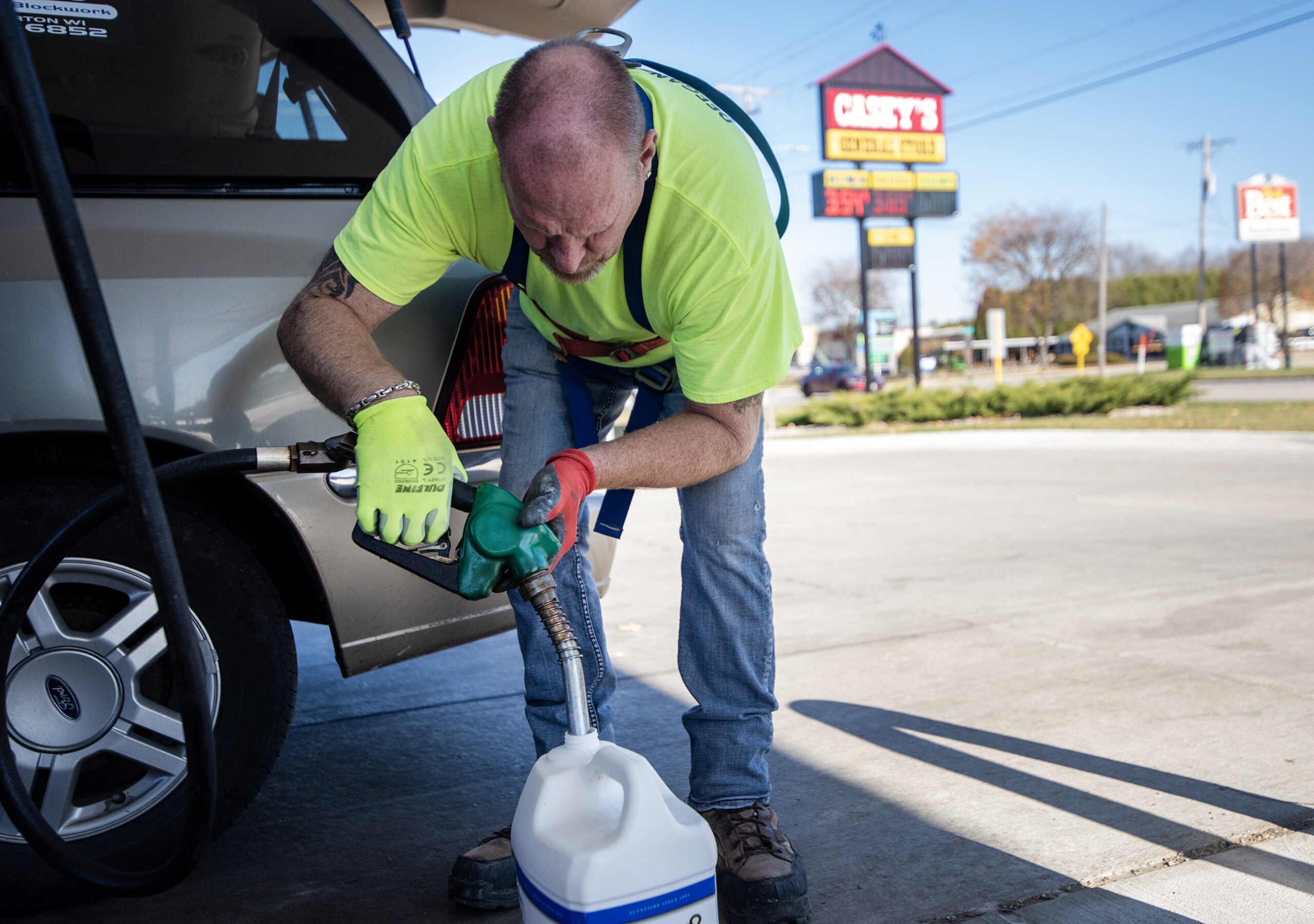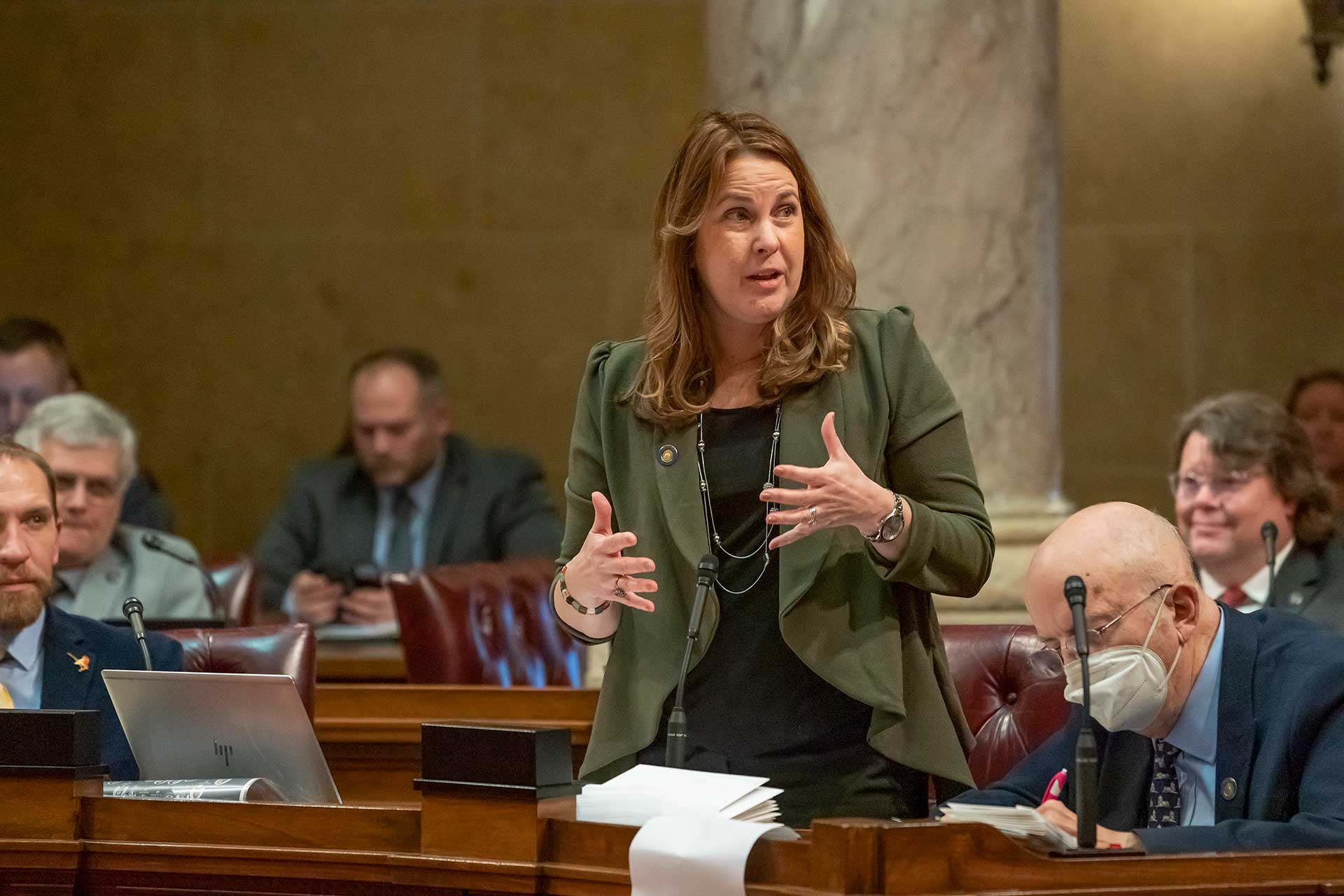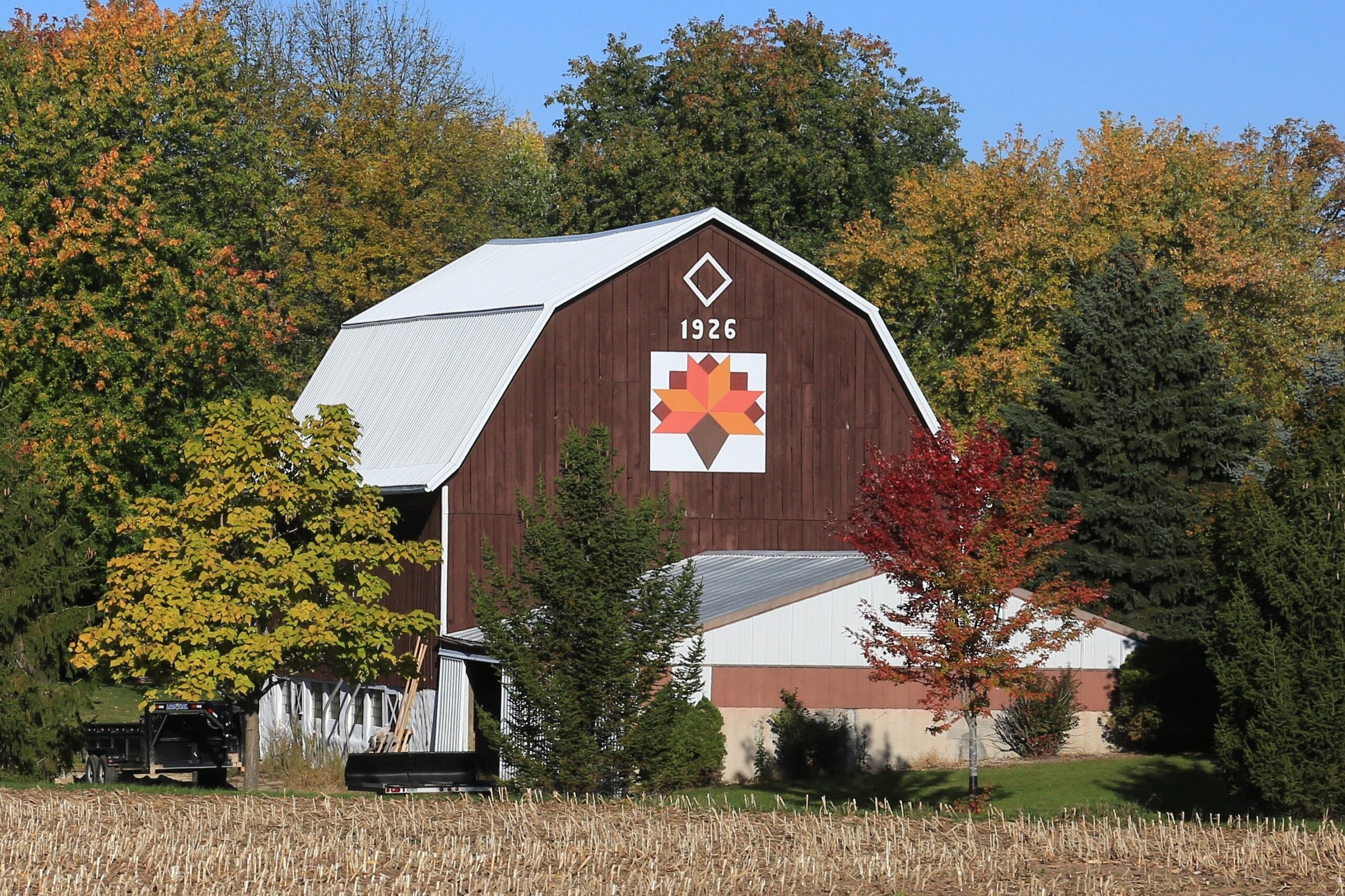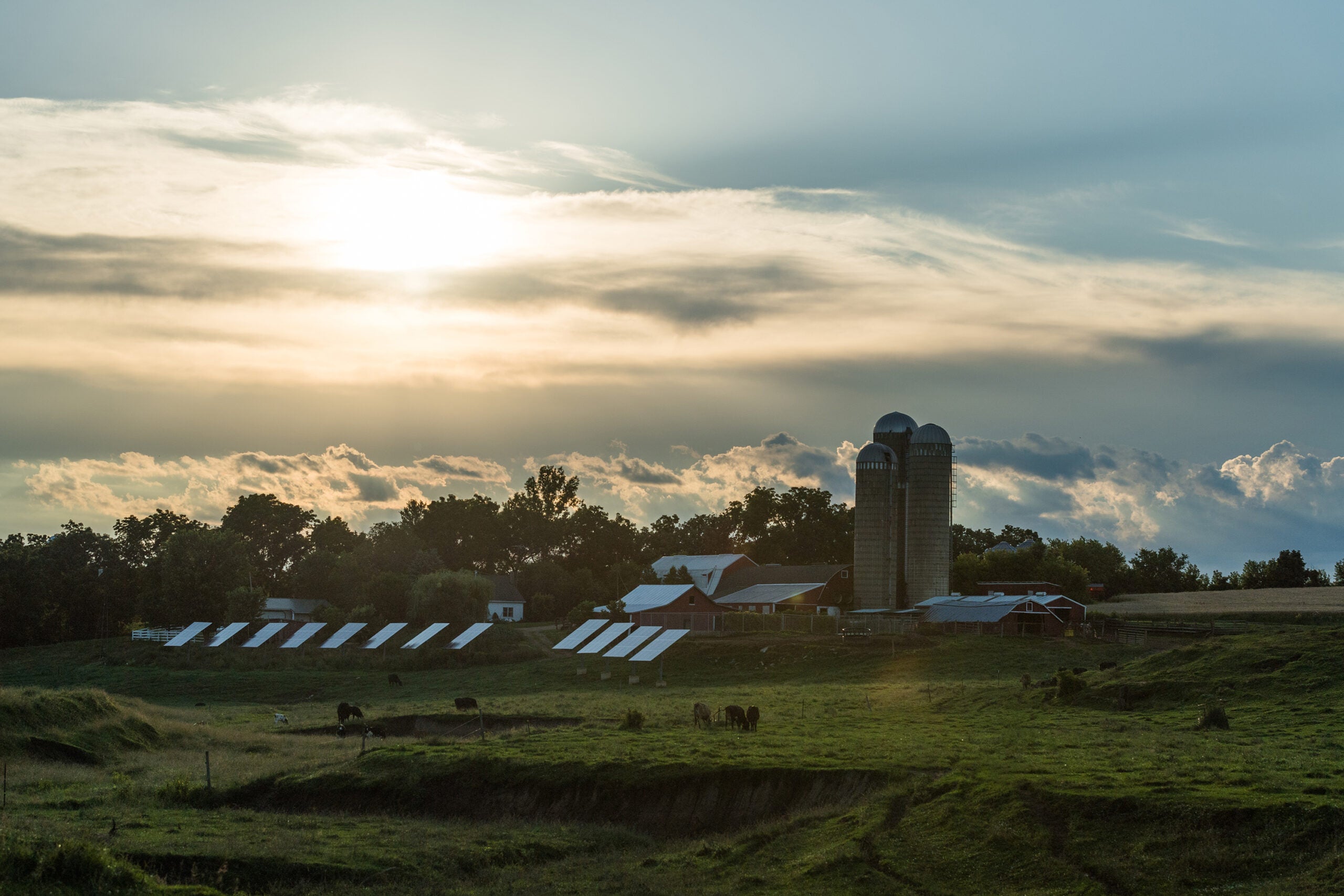Some Democratic state lawmakers want to stretch food assistance benefits at farmers markets and some grocery stores. The pilot program could also benefit Wisconsin farmers.
Under the Grow Wisconsin proposal, FoodShare benefits would double at farmers markets and grocery stores. So, if a person were to spend $2 in benefits, they’d receive a $2 token. If they were to spend $20 in benefits, they would receive a $20 token. Those tokens could then be spent on Wisconsin-produced fruits, vegetables, meat and dairy.
Grow Wisconsin would start as a pilot program in Dane, Milwaukee, and Rock counties.
Stay informed on the latest news
Sign up for WPR’s email newsletter.
State Rep. Andy Jorgensen, D-Milton, said it could economically benefit the state’s farmers while encouraging healthy eating.
“We know that people want the best foods for their families,” he said. “People on FoodShare want their dollars to go towards nutritious foods. The only reason, in a lot of cases, that people are spending their money on things like Ding Dongs and whatnot are to make that dollar stretch even further.”
So far, the Grow Wisconsin bill only has Democratic support in the Legislature.
Jorgensen introduced it as a response — or as he calls it, “a positive alternative” — to a Republican Assembly bill passed in May that would limit what FoodShare recipients can spend their benefits on. It would prohibit purchases like crab and lobster.
The state Senate still has to take up that bill, which is unlikely this session. If it did end up passing the full Legislature, Gov. Scott Walker would need a waiver from the federal government to enforce the restrictions, which would unlikely go through.
Kristin Krokowski, director of the Wisconsin Farmers Market Association and a University of Wisconsin-Extension commercial horticulture educator, said the bill is a great idea. She conducted research that found 96 percent of people who used EBT at farmers markets were able to increase their fruit and vegetable consumption. More shoppers means more money in the pockets of Wisconsin’s farmers and growers, she said.
Krokowski does have questions how the Grow Wisconsin would work logistically and how farmers would be reimbursed. She said she hopes farmers and market organizers will give input as the bill’s kinks are worked out.
Individual farmers markets across the state do offer similar programs. Krokowski said that can be challenging and confusing to FoodShare participants, since every market has its own rules. For example, the Cameron Park Farmers Market in La Crosse offers Double FoodShare Token Days once a month. In Milwaukee, the Fondy Food Center matches WIC benefits.
Michigan has a statewide program that’s similar to Grow Wisconsin, called Double Up Food Bucks.
Wisconsin Public Radio, © Copyright 2025, Board of Regents of the University of Wisconsin System and Wisconsin Educational Communications Board.

